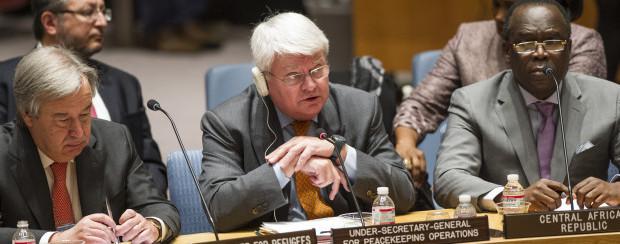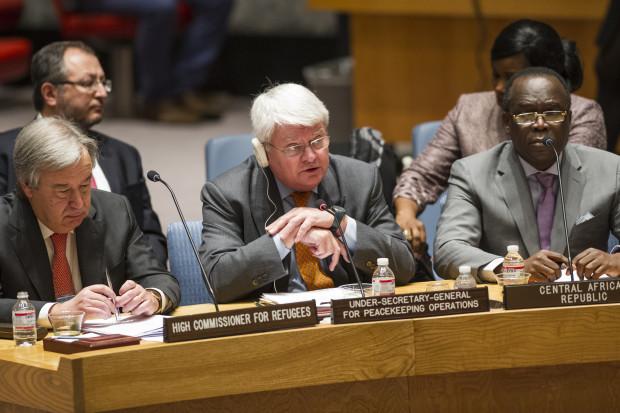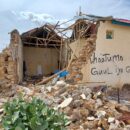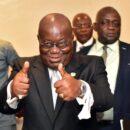Peacekeepers in the CAR: disunited, disillusioned and mostly ineffective

M’Poko Airport in Bangui, capital of the Central African Republic, is a hub of activity. Internally displaced Central Africans camp on the runway; soldiers from all around the continent line the perimeter; while advisors and combat forces from as far away as France patrol the gateways. Which of these groups you perceive to have the strongest presence depends, to a great extent, on your point of view. From the air it seems to be the Central Africans, seen from the terminal building it is the African Union (AU) soldiers who are most visible, but at the entry checkpoints it is the Europeans that are in control.
French forces under Operation Sangaris were deployed to the airport in December 2013. They were soon followed by the African-led International Support Mission in the Central African Republic (MISCA) that included troop contributions from Rwanda, Chad, Gabon, Republic of Congo, Burundi, Equatorial Guinea, Cameroon and the Democratic Republic of Congo. In April 2014, France voted to increase its presence from 2,000 to 4,000 men. Member states of the European Union (EU) also began sending troops to M’Poko; Finnish and Estonian troops have already deployed as part of the European Union Force for the Central African Republic (EUFOR RCA). At the April EU-Africa summit, the United Nations (UN) authorised a new mission to the CAR that would increase MISCA’s numbers from 6,000 to 10,000, as well as providing an additional 1,800 police officers from September 2014.
With half of all troops resting at any given moment, there are currently several thousand active peace-keepers deployed at M’Poko Airport, across Bangui and in the CAR’s key rural towns. They share a mandate to “help protect civilians, stabilise the country and restore State authority over the territory, as well as create conditions conducive to the provision of humanitarian assistance”. Their presence is aimed at discouraging random internal movement by providing civilians with a sense of security. It is also designed to facilitate systemised movement – or evacuation – when the circumstances render that necessary. Additionally, peacekeepers play a key role in securing the transport of aid and consumer goods through M’Poko, border posts and rural hubs.
Following the recent summit, France is expected to extend its mandate to include the use of “all necessary means” to enable a national disarmament campaign. Nevertheless, the Sangaris, MISCA and EUFOR troops are, and will remain, a joint peace enforcement operation and not a force for offensive action.
Disunity
The UN authorises and advises the collective intervention force. It cannot, however, ensure adherence to the mandate it approved or create a sense of unity. This has proven to be unachievable among the MISCA ranks. In December 2013 for example, a group of Burundian soldiers – of which a total of 850 were deployed to the CAR under MISCA – opened fire on a Chadian unit, killing three peace-keepers. In May of this year, rumours circulated in Bangui that opportunistic Burundian soldiers were lending their uniforms to militia for economic gain. Reports have also leaked through the Central African press that Congolese units have refused to cooperate with other MISCA units, while members of the Cameroonian deployment, owing to wage arrears, have refused to cooperate at all.
Most significantly, Chadian soldiers withdrew following accusations that they committed human rights abuses during fighting near the airport in March that killed 24 and injured over 100. The 800 strong Chadian unit had been instrumental in evacuating Bangui’s Muslim population to towns north of the city and to refugee camps over the CAR’s borders. Chadian-led convoys leaving the city each week became a prime target for militia grenade attacks. The abuse accusations were made after Chadian soldiers responded by opening fire on one occasion.
Despite being nominally coordinated by Multinational Operational Commander, General Martin Toumeta Chomu of Cameroon, each African contingent has the scope to act independently on the ground. This is in part due to the changing nature of the conflict, which requires situational reactions, but it is also because direct orders of AU units come from a national (i.e. Chadian, Burundian, Cameroonian or Congolese etc.) commander. This commander himself follows nationally stipulated, rather than coordinated or international, terms of engagement. This leaves considerable room for regional agendas. The direct action that Chadian peacekeepers took to defend convoys leaving Bangui might be understood as a reflection of Chadian President Idriss Déby’s policy of direct mediation in the CAR, particularly since the national commander of the Chadian troops is the president’s brother.
Disillusion?
The combined UN force is limited by its peace-keeping mandate and hampered by lack of unity and inadequate funding. This intervention force will not relieve the conflict. The supplementary UN mission expected in September and supported by the April EUFOR arrivals is equally unlikely to resolve it.
The absence of a national army, reliable infrastructure and institutions, as well as an established government, will hinder progress towards a resolution. The activities of several armed groups with strong designs for artisanal mines, the presence of over 500,000 displaced civilians and the wide-spread sharing of toxic rumours of cannibalism and disenfranchisement due to displacement, will only make matters more difficult.
It is overly optimistic to expect that peace will soon be restored to the CAR. The fluidity of the situation, as evidenced by the last six months, does, however, demonstrate that significant changes are possible. In December 2013, the country was led by Michel Djotodia and threatened by a rebel group known as the ex-Séléka. In January, Djotodia sought exile in Cameroon and was replaced by Interim President Catherine Samba-Panza, backed by France and the Republic of Congo. By February, the self-formed vigilante militias that forced the ex-Séléka to flee Bangui became the new number one enemy of the state. By March, these groups had grown confident enough to include UN troops amongst their targets. In April, ex-Séléka began orchestrating reprisal attacks outside of Bangui and in May, new self-defence groups were established in the capital to fight against the vigilante militias.
When the new UN recruits arrive at M’Poko airport they will not face the same situation that resulted in their deployment. But their mandate and command structures will not have changed to reflect the new facts on the ground. They will attempt to establish order and stability, but are unlikely to succeed.
The writer is a political analyst based in London.







Indeed they are unlikely to succeed…
Almost two centuries ago a German General (Carl von Clausewtiz) penned the famous dictum: “War is merely the continuation of policy by other means”.
This means, before there can be any “success” by the soldiers of the UN, AU, EU (and whoever else wants to show up) there has to be a “Policy” for them to implement. Firepower without a target does not mean anything.
This is also why the various power “Groups” (who superficially may look like just disorganized bands of thugs) cannot seem to be defeated for years and years (think Somalia, the Zaire/Congo and others) even by large, internationally funded, professional troops. The local “Groups” have a policy to fight for – albeit: All power to themselves – but that is still a concrete goal.
All peacekeepers are wasting their time unless and until a plan for an effective administration of the population whose peace has to be kept, is developed for the peacekeepers to impose on the area. Then and only then will they actually be able to start “saving lives”.
But of course, this is a problem that has not been solved, or even seriously discussed, ever since the European Colonial Governments were withdrawn. So, we can look forward to many more unsuccessful attempts to establish order and stability.
If Africans cannot be their brothers’ keper then what hope is there for the continent. Worst the UN is a lethargic institution with double standards.
There is a disturbing trend in the way peace support interventions in Africa are playing out. We are increasingly seeing rapid AU deployments that lack financial and materiel support, followed by the undermining of those interventions based upon claims of incoherence or human rights shortfalls, that in turn justify the deployment of a UN force. Unfortunately, those UN deployments are delayed or never materializes and rarely, if ever, are as effective as they might seem on paper. The UN peacekeeping mission in CAR is a figment of UN planners imaginations, and the result of thoughtless templatism. The UN cannot mobilize the personnel and capacities they have put on paper. And they know it. We can expect 50% UN force strength, high vacancy rates in the civilian structures and huge gaps in capacity, rendering the missions ineffective from the get-go. Several months now since UN supposedly took the ‘lead’, where are they? Time the UN worked with the AU to develop a genuine framework for joint action; neither can handle 21st Century operations alone.